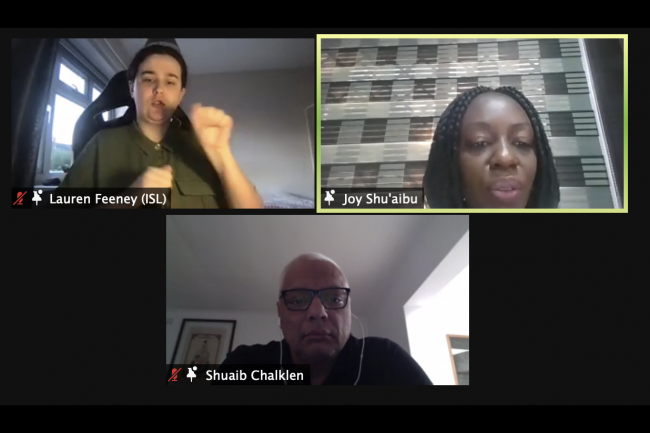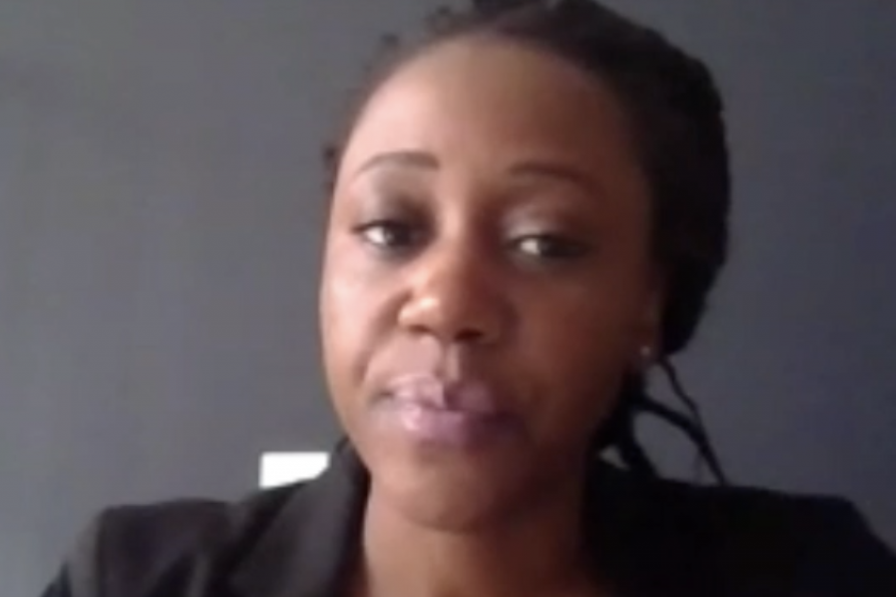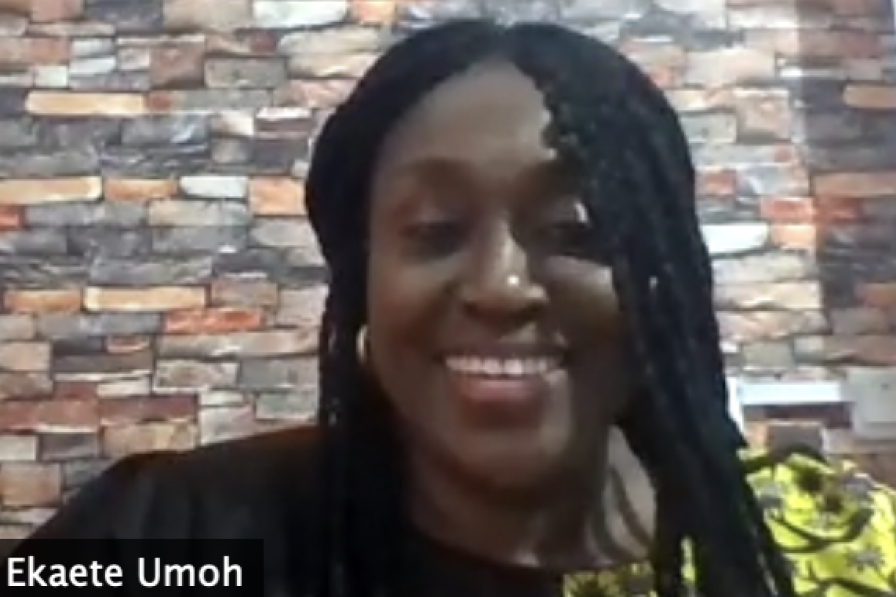The Potential of Value Chain Partnerships in Disability-inclusive Sustainable Development
This event was organized by Sightsavers. Joy Shu’aibu, Sightsavers, and Shuaib Chalklen, African Disability Forum, moderated the session, which was simultaneously interpreted in sign language.
Arnolda Shiundu, Kenya Brewery Limited, outlined her company’s approach to engaging with people living with disability in its value chain, pointing to a pilot project working with farmers on white sorghum production and partnering with Sightsavers on assessing the suitability of corporate workspaces.
Ola Ehinmoro, Unilever, shared his company’s goal to increase the number of employees with disabilities to 5% of its total workforce, and spotlighted initiatives on creating opportunities for inclusion and “preparing the future of work,” including on skills training for women and young people. He emphasized the importance of ensuring living wages for workers in every part of the value chain, underscoring the difference between a “living” wage and a “minimum” wage.
Anderson Gitonga, CEO, United Disabled Persons of Kenya, discussed partnerships between businesses and networks of people living with disabilities. He highlighted the need for genuine partnerships that create a common understanding of the needs and interests of persons with disabilities, underpinned by a “partnership culture” to promote inclusive growth. A critical element of success, Gitonga noted, is the mobilization of institutional partnerships, such as with local authorities, trade unions, and residents associations.
Busola Alofe, CEO, Chartered Institute of Personnel Management of Nigeria (CIPM), outlined the objectives of the Nigeria Business Disability Network, an offshoot of the International Labour Organization’s (ILO) Global Business Disability Network, created in December 2020. She said it aims to foster disability inclusion practices and policies in the workplace and enhance the job readiness of people with disabilities. Activities, she said, include disability audits and the showcasing of good business practices for peer learning.
In a second round of interventions, Gitonga said governments play a key role in setting an inclusive economy agenda, and ought to encourage companies to address the needs of the entire population, including the poor. He described trade unions as “key intermediaries for improving work conditions,” but noted they often lack awareness on how to approach the issue of inclusiveness.
Ekaete Judith Umoh, African Disability Forum, underscored the relevance of Sustainable Development Goal 8 (decent work and economic growth) in providing a global framework of action on disability-inclusive workplaces. She noted the need to engage actors on the supply side and to promote access to education and training, which is key to enabling access to decent work.
Shiundu noted the increasing number of companies coming forward with commitments on inclusiveness creates a “good ecosystem for change.” She said governments should lead the way in terms of inclusion.
Alofe emphasized that small and medium-sized enterprises (SMEs), which represent the biggest share of the workforce, are key to driving broader workplace inclusivity.
Ehinmoro noted partnerships with organizations of people with disabilities can foster knowledge exchange and help scale up successful initiatives. He said investments in diversity and inclusion are part of sustainability investments, and underscored that diverse workforces are a source of success for companies.



